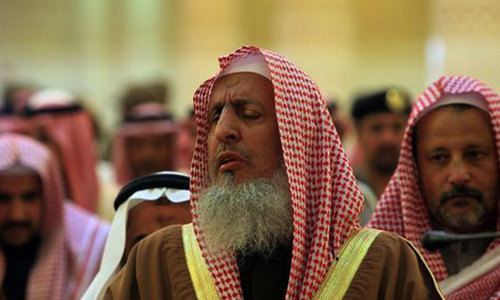DUBAI: With daring film-makers, untold stories and entertainment-starved young people, Saudi Arabia has all the makings of a local movie industry except for theatres.
As the traditionally austere kingdom cautiously embraces more forms of entertainment, local film-makers are exploring a new frontier in Saudi art, using the internet to screen films and pushing boundaries of expression often with surprise backing from top royals.
“Saudi Arabia is the future of film-making in the Gulf,” said Butheina Kazim, co-founder of Dubai’s independent cinema platform “Cinema Akil”, pointing to a crop of Saudi films that have emerged in recent years.
Kazim screened three Saudi short films to audiences in Dubai last month, including one called Wasati, or moderate in Arabic. The movie is based on a real-life event that took place in the mid-1990s when a group of ultraconservatives rushed to the stage during a play in Saudi Arabia and shut it down. The incident dampened theatre in Saudi Arabia for years.
The film by Ali Kalthami was screened in Los Angeles last year, and was shown for one night in June at Riyadh’s Al Yamamah University in the same theatre where the play was shut down two decades ago.
One of Saudi Arabia’s most prominent film pioneers, Kalthami is co-founder of C3 Films and Telfaz11, a popular YouTube channel that has amassed more than 1 billion views since it was launched in 2011.
Funding
His movie Wasati was one of several Saudi shorts produced last year with funding from the King Abdulaziz Center for World Culture, an initiative named after the founder of the kingdom by Saudi Arabia’s state-oil company Aramco. Kalthami said it was the first time he’d ever received funding for a film from a state-linked entity. “I think because of the history we made online ... they trusted we could tell wonderful stories, human stories in Saudi,” he said.
By using the internet to show films, Telfaz11 and other Saudi production houses have managed to circumvent traditional distribution channels and make do without cinemas. Even so, Saudi film-makers have to contend with how to tell their stories within the bounds of the kingdom’s ultraconservative mores and its limits on free speech.
It wasn’t always like this. There used to be movie theatres across Saudi Arabia from the 1960s through the 1980s, until religious hard-liners were given greater sway over public life. In the years that followed, Saudis could rent movies from video stores, though scenes of lovemaking and cursing were edited out. Saudis also had access to movies on satellite channels. Nowadays, Saudis can stream movies online where Telfaz11 has partnered with YouTube.
Some of the local films being produced are purely for entertainment, while others wade into the myriad everyday challenges people in Saudi Arabia face.
Oscars
The film Wadjda made history in 2013 by becoming the first Academy Award entry for Saudi Arabia, though it wasn’t nominated for the Oscars. The movie follows the story of a 10-year-old girl who dreams of having a bicycle just like the boys in her ultraconservative neighbourhood, where men and women are strictly segregated and where boys and girls attend separate schools. The film was written and directed by Saudi female director Haifaa al-Mansour, who shot the film entirely in the kingdom.
Saudi Arabia is vying again this year for an Oscar in the foreign-language film category. The film Barakah Meets Barakah, by director Mahmoud Sabbagh, made its premiere at the Berlin International Film Festival in February. The movie, which has been called the kingdom’s first romantic comedy, tells the story of a civil servant who falls for a Saudi girl whose Instagram posts have made her a local celebrity.
Though four years apart, the two films tackle the issue of gender segregation in Saudi Arabia, which remains strictly enforced.
Backing by crown prince
The emergence of a Saudi film scene is happening as the kingdom begins to loosen the reins on fun and entertainment after nearly two decades without cinemas or concerts.
Saudi Arabia’s 31-year-old heir to throne, Mohammed bin Salman, is set to inherit a nation where more than half of the population is under 25, and most are active on social media, where they can access the world beyond the reach of state censors.
The crown prince is behind an ambitious blueprint to transform Saudi Arabia’s economy and society. He wants to encourage Saudis to spend more of their money locally, including doubling what Saudi families spend on entertainment in the kingdom.
While Saudi Arabia’s influential clerics and many citizens consider Western-style entertainment sinful, the prince’s backing means there could soon be cinemas in the kingdom. Prince Mohammed’s non-profit, MiSK, sponsored a screening in August of an Arabic 3D action film in the capital, Riyadh. There have been other similar screenings in the coastal city of Jeddah.
The government has also backed a Saudi film festival that’s taken place for the past few years in the eastern city of Dhahran. This year, some 60 Saudi films were screened.
After watching the Saudi shorts in Dubai’s Cinema Akil and meeting the film-makers, aspiring film-maker Lamia al-Shwwier, who’s just graduated with a master’s degree from the Los Angeles campus of the New York Film Academy, said she felt confident about the prospects of a Saudi film industry.
“We have so many incredible stories to tell, whether they are stories of success or challenge. Our society is rich in stories and ideas,” she said. —AP
Published in Dawn, September 8th, 2017














































